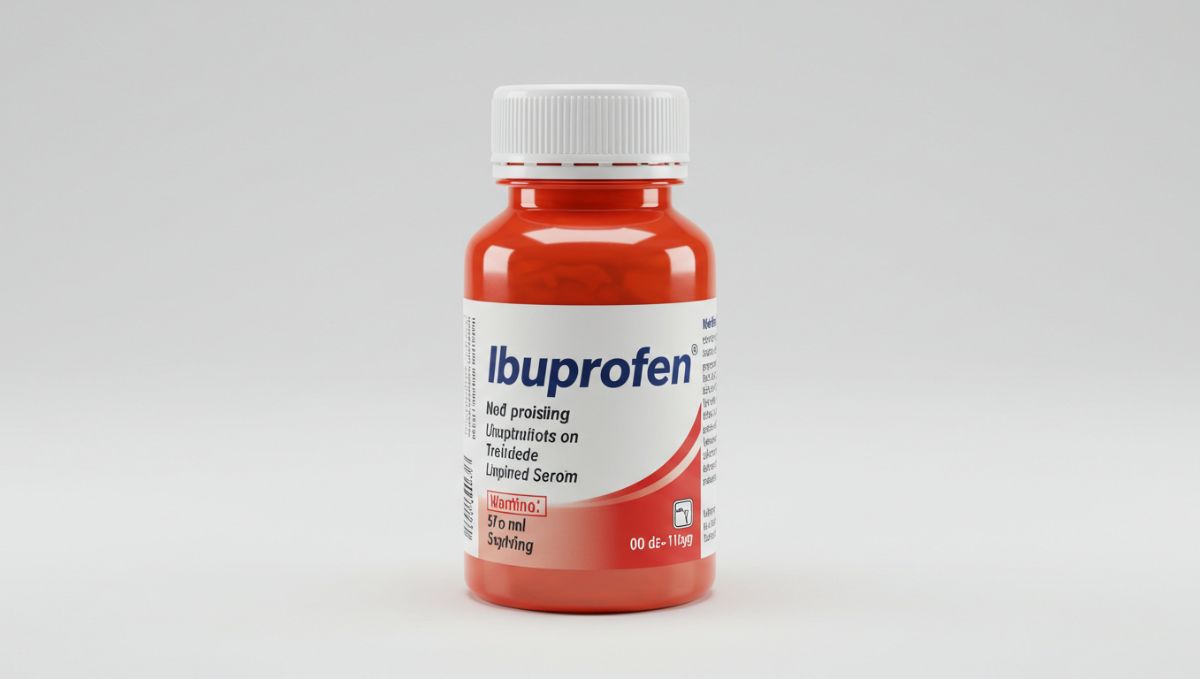Íbufen is a widely used medication that belongs to the group of non-steroidal anti-inflammatory drugs (NSAIDs). It is commonly prescribed for pain relief, fever reduction, and inflammation control. Thanks to its effectiveness and accessibility, Íbufen has become a trusted option for both adults and children when treating common health conditions.
In this article, we will explore what Íbufen is, how it works, its different uses, potential side effects, and important safety guidelines for responsible consumption.
What Is Íbufen?
Íbufen is a pharmaceutical product whose main active ingredient is ibuprofen, a medication well-known in the medical community. It is used to treat mild to moderate pain, such as headaches, muscle aches, toothaches, and menstrual cramps. Additionally, Íbufen is effective in reducing fever and inflammation caused by infections or chronic conditions like arthritis.
The medication is available in different forms including tablets, capsules, syrup, and suspensions, making it suitable for patients of various ages.
How Íbufen Works in the Body
Íbu-fen functions by inhibiting enzymes called cyclooxygenases (COX-1 and COX-2), which are responsible for producing prostaglandins. Prostaglandins are substances that promote inflammation, pain, and fever in the body. By reducing their production, Íbufen effectively lowers pain intensity, decreases fever, and minimizes swelling.
This mechanism of action is why it is categorized as an NSAID and why it is often preferred over stronger medications with more severe side effects.
Common Uses of Íbufen
Íbu-fen is prescribed for a variety of conditions where pain, fever, or inflammation are present. Some of the most common uses include:
1. Headaches and Migraines
Íbufen is a quick and effective remedy for tension headaches and migraines, helping patients resume normal activities.
2. Dental Pain
Dentists often recommend Íbufen after extractions or dental surgeries to reduce pain and swelling.
3. Muscle and Joint Pain
Sports injuries, sprains, or arthritis-related discomfort can be alleviated with Íbufen. Its anti-inflammatory properties help speed up recovery.
4. Menstrual Cramps
For women experiencing dysmenorrhea, Íbu-fen provides relief by reducing uterine contractions and associated pain.
5. Fever Reduction
Íbufen is commonly given to both adults and children to lower high fever caused by infections.
Forms and Dosage of Íbufen
The appropriate dosage of Íbufen depends on the age, weight, and health condition of the patient. It is crucial to follow the medical instructions or the product leaflet.
-
Adults: Typically, 200–400 mg every 6–8 hours, not exceeding 1200 mg in self-medication or 2400 mg under strict medical supervision.
-
Children: Dosage is calculated based on weight, often 5–10 mg per kg of body weight, every 6–8 hours. Íbufen syrup or suspension is usually recommended for children.
Overdosing can increase the risk of serious side effects, so caution is essential.
Possible Side Effects of Íbufen
Although Íbu-fen is generally safe when taken correctly, some individuals may experience side effects. The most common include:
-
Gastrointestinal issues: nausea, stomach pain, indigestion, or diarrhea.
-
Dizziness or headaches: in sensitive individuals.
-
Skin reactions: rash or itching in rare cases.
Serious but less common side effects include ulcers, gastrointestinal bleeding, kidney problems, or allergic reactions. Patients with chronic conditions should consult a doctor before long-term use.
Precautions and Warnings
Íbu-fen should be used responsibly, especially in patients with pre-existing health conditions. Important precautions include:
-
Avoid use if allergic to ibuprofen or other NSAIDs.
-
Patients with ulcers, stomach bleeding, or gastrointestinal diseases should seek medical advice.
-
People with kidney or liver problems must use Íbufen under medical supervision.
-
Pregnant women, especially in the third trimester, should avoid it unless prescribed.
-
It should not be combined with alcohol or other medications that irritate the stomach lining.
Drug Interactions with Íbufen
Íbu-fen may interact with other medications, reducing effectiveness or increasing risks. Notable interactions include:
-
Anticoagulants (blood thinners): may increase bleeding risk.
-
Antihypertensive drugs: effectiveness may be reduced.
-
Other NSAIDs or aspirin: increase the likelihood of gastrointestinal issues.
Always inform your doctor about any medications you are taking before starting Íbu-fen.
Safe Alternatives to Íbufen
In cases where Íbu-fen is not suitable, doctors may recommend alternatives:
-
Paracetamol (acetaminophen): safer for patients with stomach issues, but less effective for inflammation.
-
Topical NSAIDs: gels and creams applied directly to the affected area to minimize systemic side effects.
-
Natural remedies: warm compresses, rest, or herbal teas for mild discomfort.
Storage and Handling of Íbufen
To maintain effectiveness, Íbu-fen should be stored properly:
-
Keep at room temperature, away from excessive heat or moisture.
-
Store out of children’s reach, especially syrup formulations.
-
Do not use after the expiration date indicated on the packaging.
Final Thoughts on Íbufen
Íbufen is a trusted and effective medication for managing pain, fever, and inflammation. Its availability in multiple forms makes it convenient for patients of all ages. However, like all medications, it should be used with care, following dosage guidelines and medical recommendations.
By understanding its uses, side effects, and safety precautions, patients can maximize the benefits of Ibufen while minimizing risks. Responsible use ensures that this valuable drug continues to improve the quality of life for millions worldwide.
